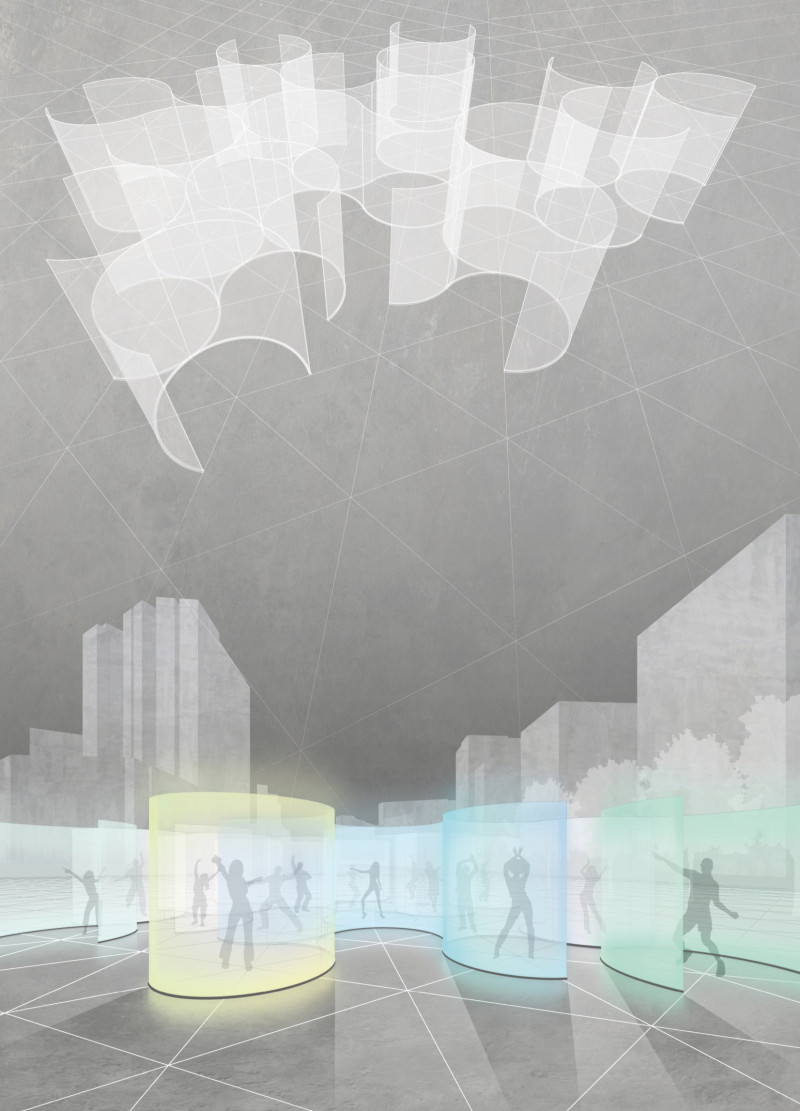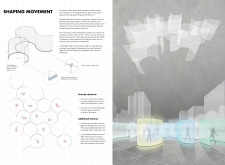5 key facts about this project
The Berlin Techno Booth is an engaging solution for creating safe and interactive dance spaces. Located in an environment that supports cultural and nightlife activities, the structure serves individuals while addressing public health considerations. The design revolves around modular, circular forms that allow for movement and connection among users, all while respecting the need for physical distancing.
Design Concept
The design is inspired by how respiratory droplets move through the air. Curved geometry is central to the concept, resulting in a layout that is adaptable and can be rearranged for different types of events. Each circular module allows a 360-degree dancing experience, free from restrictions that typical designs impose. This form enables users to interact better while enjoying their space.
Materials
Panels made of Plexiglass are a significant part of the design. The transparency of this material not only allows for clear sightlines but also promotes social interaction among users. It creates a sense of community even when people are dancing in their own defined spaces. Aluminum profiles provide structural support, holding the panels in place while also housing integrated LED lighting.
Lighting Integration
LED lights are a key feature in the Berlin Techno Booth. They enhance the dance experience by changing colors and intensities in response to the music and movements of the dancers. This feature adds to the atmosphere, making each moment unique while ensuring that safety remains a priority. The lighting acts as both a visual and emotional cue in the space.
Access and Hygiene Features
Access is designed without doors, using open entry points that allow easy movement in and out of each module. This detail reduces touchpoints, which is essential for maintaining public health. The use of non-porous Plexiglass also simplifies cleaning, enabling effective disinfection practices while ensuring that the experience is as enjoyable as possible.
Each booth includes customizable lighting that not only improves the visual environment but also responds to the energy of its users, creating a lively and adaptable space for social interactions and dance.



















































